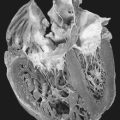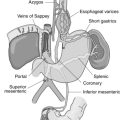37. Galactosemia
Definition
Galactosemia is an inherited metabolic deficiency of the galactose-1-phosphate uridyltransferase enzyme. This is one of the most common carbohydrate metabolism disorders and may be life threatening or even fatal in the neonatal period.
Incidence
The incidence of galactosemia in the United States is about 1:40,000 to 1:60,000 people; worldwide the incidence varies considerably. All races and ethnic groups can be affected, with the Asian population having the lowest occurrence of the disease.
Etiology
Galactosemia results from alteration of the gene for galactose-1-phosphate uridyltransferase (GALT) found at the 9p13 band.
Signs and Symptoms
• Ascites
• Ataxia
• Bleeding coagulopathy
• Cataracts
• Hepatomegaly
• Hypergonadotropic hypogonadism
• Hypotonia
• Jaundice
• Lethargy
• Liver dysfunction
• Poor growth
• Sepsis
• Tremor
• Vitreous hemorrhage
Medical Management
The primary treatment is elimination of lactose from the patient’s diet. Routine screening of newborns generally initiates the diagnosis of this disease. This is particularly important for the newborn being breastfed, since breast milk is high in lactose. Before lactose is eliminated from the diet, an infant with galactosemia exhibits poor growth over the first weeks of life.
Galactose-1-phosphate accumulates quite rapidly in the affected infant; if untreated, this accumulation can lead to cataracts, cirrhosis, and severe mental retardation.
Complications
• Ascites
• Cataracts
• Cirrhosis
• Cognitive impairment
• Hypergonadotropic hypogonadism
• Primary ovarian failure
• Speech impairment
• Vitreous hemorrhage
Anesthesia Implications
Anesthesia care is greatly affected by the degree of liver dysfunction in these patients. Numerous anesthesia medications are metabolized to a great degree, if not exclusively, by the liver. The anesthetist must anticipate a prolongation of the effects of such medications, and prudence would thus dictate reducing their dosage(s). The anesthetist should also anticipate the need for postoperative ventilatory support secondary to residual effects of medications.
The newly diagnosed neonate may have prolonged/elevated clotting times. Such a patient may lose an inordinately large amount of blood during a surgical procedure. Circulating volume, fluid resuscitation, and blood loss replacement are critical perioperative evaluations that must be completed.
A patient who is jaundiced should have the hemoglobin concentration determined preoperatively.
The patient may have albuminuria, resulting in an osmotic diuresis. As a result, the patient’s urine output should not be relied on very heavily as an indicator of intravascular volume.







